Diamond theft. Fall of the Konstantinovich clan
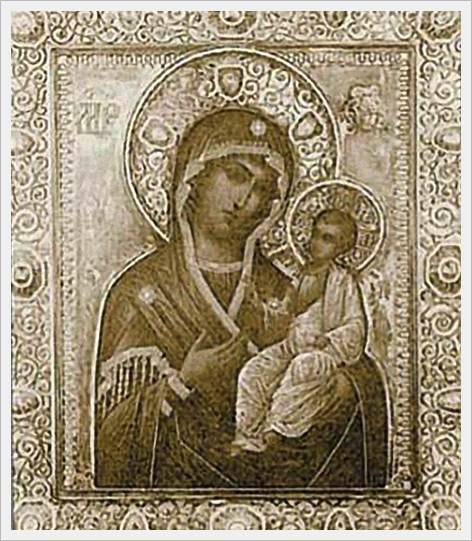
Loud stories around jewelry could strengthen the position of monarchs or destroy them, and events related to jewelry were of great importance for the public - and certainly for the most august persons themselves. This once again emphasizes the importance of jewelry: they have tremendous value, symbolizing the high position of their owners (Jodi Smith).
In the spring of 1874, St. Petersburg was agitated by a rumor about the theft in the imperial family, with the speed of a forest fire, the rumor spread throughout the capital. The event was talked about everywhere in the salons of high-ranking persons, which is reflected in numerous personal diaries, and in the most dubious bazaars. And indeed, the gossips had something to discuss: infrequently such events occurred in the imperial family, if earlier they discussed amorous cases, which were practically not hidden, now an exclusively criminal event has occurred - theft.
A bit of history.
Thefts in imperial residences
Thefts in the imperial residences, despite strict supervision, were, if not a regular occurrence, then they happened quite often. Despite the strict selection of personnel, which was selected on a family basis. They started their careers with "palace boys" and ended with chamber footmen. It is worth adding that the most limited and carefully checked palace personnel were generally allowed into the personal rooms of the imperial couple. And despite all this, the temptation was very great, because the volumes (not the quantity, but the volumes) of the jewels that the crowned persons of the Russian Empire had were enormous. Here are excerpts from the book "Jewelry Treasures of the Russian Imperial Court" by Igor Zimin.
For example, in 1836, the following precious things disappeared from the half of Empress Alexandra Feodorovna: a gold chain (220 rubles); ring with roses (25 rubles); two rings with roses (20 rubles each); one diamond (350 rubles); one diamond (250 rubles); sevigne "with different stones" (1 rubles); clasp with garnets, diamonds and roses (000 rubles). Total for 1 rubles.
Upon discovery of the loss, an investigation began immediately. Since the circle of servants who had access to half of the empress was severely limited, the circle of suspects was not wide. During the investigation, it was quickly established that the things were stolen by the stoker Pavel Yakimov. It should be noted that there were only 5 such stokers admitted to the royal "apartment" in the Winter Palace. In March 1835 he was admitted to the holy of holies - "to Her Majesty's bedchamber." As a rule, in the bedrooms of the empresses there were valuables that were used regularly. And there were a lot of them.
During interrogation, the stoker testified that he committed the first theft in August 1835. Then from the Empress’s room he took “a crown with branches made of gold, and since this crown is disassembled ... he sold it in parts at a flea market in a shop where icons ... one sheet a crown for 40, another for 60 rubles. Moreover, a year later he stole a thing "from Her Majesty's Diamond Room." It was a pomegranate clasp, which they managed to return from the pawnshop, where it was laid by a dashing stoker.
At the end of the investigation, Nicholas I made the following decision: firstly, Yakimov was sent to a prison company; secondly, “The Highest ordered the sums for the things pledged in the pawnshop to be recovered from Her Majesty’s chamber footmen in the room”; thirdly, the tsar “deigned to order: that none of the lackeys, stokers and workers and artisans should enter the inner rooms of Their Majesties except in the chamber lackeys”; fourthly, they also established supervision of the chamber footmen, since from that time on “together with the chamber footman, the palace grenadier entered the rooms every time.”
Thus ended this scandalous story. However, the thefts in the imperial residences did not stop there. The temptation was so great! There were already a lot of jewels on the personal halves!
As a result, in 1839, things from Empress Alexandra Feodorovna were again stolen from her rooms, this time in the Anichkov Palace.
Under Nicholas I, despite the fairly frequent facts of theft, criminals, as a rule, were found. So, during the investigation it turned out that the thieves were the stoker Mikhailov and the polisher Chukasev. It should be noted that the most limited and carefully checked palace personnel were generally allowed into the personal rooms of the imperial couple. But, apparently, sometimes the temptation turned out to be stronger.
And all this happened under the formidable Emperor Nicholas I, from whose gaze many high-ranking dignitaries fainted, who personally made the decision on each theft and was ruthless to the servants.
But there were also cases when jewelry was lost, and this was such a common occurrence that it became the basis of M. Yu. Lermontov's work "Masquerade", but there were also such losses that must be mentioned. Let us turn again to the book "Jewelry Treasures of the Russian Imperial Court" by Igor Zimin.
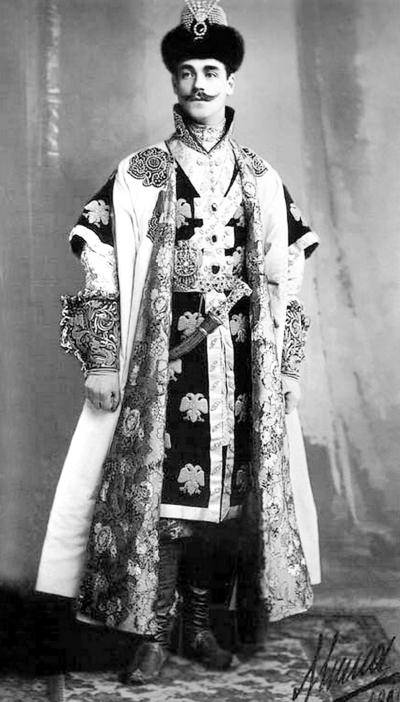
The ornament must have fallen from his hat during the dance. Both of them - Mom and Mikhail - were beside themselves with despair: after all, the clasp belonged to the treasures of the crown. On the same evening, all the halls of the palace were carefully examined. In the morning the detectives came and ransacked the palace from the basement to the attic, but the diamond clasp was never found. I must say that at these balls a lot of precious jewelry was lost, but I have never heard that at least one of them was found! - recalled the sister of Nicholas II, Grand Duchess Olga Alexandrovna.
The French artist O. Vernet (May 18, 1843) testifies to how great the booty of palace servants could be: “Yesterday's ball was magnificent - both gentlemen and ladies were something studded with diamonds, not to mention pearls and rubies. During the dances or simply because of the tightness in the crowd, the jewelry broke, and you had to step on pearls and rubies all the time. To believe this, one must see with one's own eyes "(O. Vernet, At the Court of Nicholas I)".
And these losses remained unsolved, despite all the efforts of experienced detectives of the St. Petersburg police.
A small digression from the topic of the article, I want to give an example of two emperors: if Nicholas I always took all matters under personal control and demanded a thorough investigation, then Nicholas II could forgive the thief.
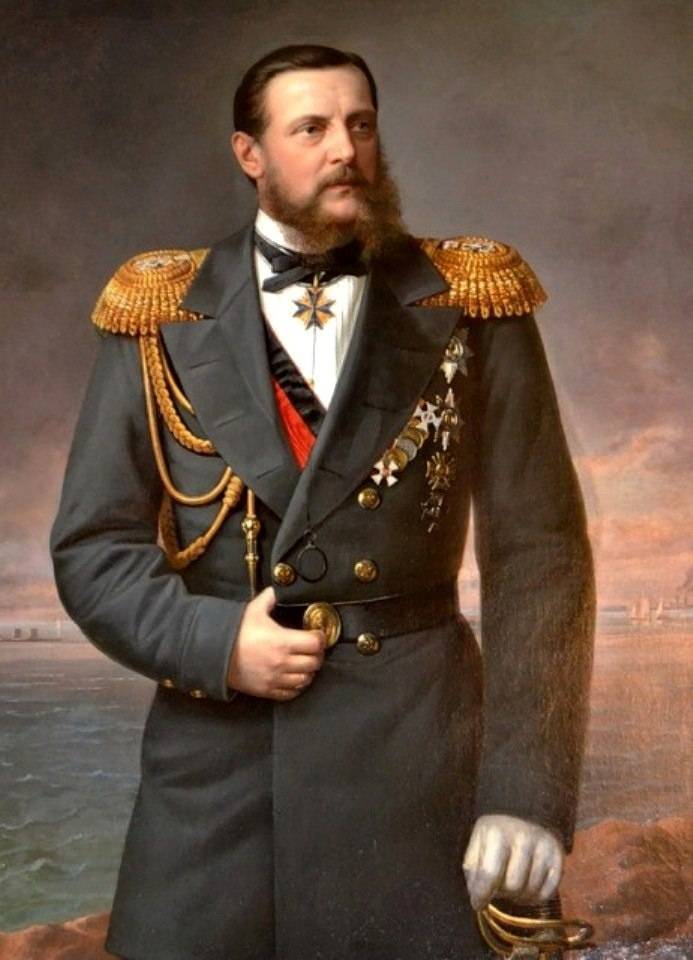
By the way, it was quite difficult to do this, since the working royal offices were guarded by state security services very carefully. So, according to the instructions, after the departure of the emperor from the residence, his office was sealed and remained sealed until his return. On the eve of the return of the tsar, the office was opened, and under the supervision of officials of the palace police, the servants, of course, repeatedly checked, put the office in order.
However, in December 1909, a small silver fold-out disappeared from the office of Nicholas II in the Winter Palace. With the knowledge of Nicholas II, the Minister of the Imperial Court, V. B. Frederiks, ordered that this matter be left "without consequences."
These are two different emperors with the same name.
So what happened in the spring of 1874 in St. Petersburg. Let us turn to the few documents that shed light on these events - these are the diaries of the participants in the events, which, unfortunately, cannot give a complete picture of the events, they are very abrupt and full of emotions. A distant relative, Prince Mikhail of Greece, did not spare Nikolai Konstantinovich at all: “The family has its black sheep. Biography of Grand Duke Nikolai Konstantinovich” is a good title for a book.
Missing Diamonds
On April 9, 1874, in the evening in the Marble Palace, Grand Duchess Alexandra Iosifovna noticed the disappearance of a diamond star from the holy image that was in her bedroom.

April 10, 1874, entry in the diary of Grand Duke Konstantin Nikolayevich:
On the same day, Nikolai Konstantinovich learned about what had happened from his father and said that at the same time his collection of gold medals had disappeared. Konstantin Nikolaevich offered to let the police know about it. Nikolai Konstantinovich expressed his readiness to follow this advice.
Another oddity: they stole not only diamonds, but also a collection of gold medals. Perhaps the two crimes are related to each other, or maybe not. After a meeting between father and son, it was decided to go to the police.
On April 11, 1874, during lunch, Konstantin Nikolayevich asked his son if he had told the police, to which he replied in the negative, but promised to follow his father's advice. Returning home, he really sent his adjutant to the Chief of Police.
On April 12, 1874, the missing diamonds were found by the police, and it was established that on April 8, the adjutant of Nikolai Konstantinovich E. P. Varpakhovsky (Varnakhovsky) brought the diamond star and gold medals to the pawnshop to pawn. However, things that day were not accepted due to the late time, but on April 9, he nevertheless pawned them in a pawnshop.
Let's summarize the intermediate result: the police found the diamonds within one day after the theft was reported - a brilliant result, but only at first glance. The fact is that a pawnshop is a legal entity that specializes in short-term collateral lending and storage of property on a reimbursable basis, therefore, the one who brought the diamonds could return and buy them back, especially since the amount received for the treasures was only two thousand rubles.
The police could set up an ambush at the pawnshop and catch the perpetrator red-handed when he returned in order to recover the things. It was possible to act differently, having received a description of a possible criminal, to establish surveillance over him, tracking his actions and expenses in order to obtain iron evidence and reveal the entire chain of criminal actions.
The most experienced policemen, masters of detective work, about whom they wrote in newspapers, and later whose ingenious combinations are described in books, arrange a confrontation with E. P. Varpakhovsky with a pawnshop worker, he recognizes him.
Now let's imagine a possible development of events.
The adjutant at the confrontation, in a fit of "righteous" anger, pulling out a revolver, shoots at the witness. And what will the policemen be left with then? With an officer who, in a fit of "righteous" anger, shot the slanderer.
And again a little history.
According to the surviving archival documents, Boris Yakovlevich spent the appointed time at the Udelnaya station, in the House of Charity for the Mentally Ill. Where he met the beginning of the First World War.
To the credit of Boris Kolzakov, having been released, he immediately went to the front and fought heroically, having served as a full Knight of St. George. The first wound was received in November 1914, the second - exactly a year later, to the day, after the tragic incident in Samarkand, the father was a hereditary nobleman and, a retired major general, helped.
Evgeny Varpakhovsky
A little about Adjutant E. P. Varpakhovsky. 32 years old, captain, in the memoirs and memoirs of eyewitnesses of the events, the name of the adjutant is often indicated with errors, but most likely his name was Evgeny Petrovich Varpakhovsky, son of Pyotr Evdokimovich Varpakhovsky (1791–1855), a Polish nobleman, Russian military leader, lieutenant general, chamberlain. Why so few? The fact is that nothing is known about him, only his date of birth is 1842. The Internet only gives out excerpts from adventure novels about the adventures of an adventurer and a swindler, and the fact that he was the younger brother of the famous Baroness Yulia Vrevskaya, that's all.
E. P. Varpakhovsky admits (some “historians” like to add that the “young 32-year-old” adjutant burst into tears) that it was he who brought the diamonds to the pawnshop at the direction of Grand Duke Nikolai Konstantinovich, the case was solved. But if you think about it, you get the impression that everything is not so in this case.
The theft was committed from the bedroom of the Grand Duchess Alexandra Iosifovna, nee Alexandra of Saxe-Altenburg, from the foregoing it follows that such thefts from private quarters have already taken place, something else confuses. It was not jewels that were stolen, of which there were a lot in the princess’s bedroom, so much that it was quite possible to write off the theft as an ordinary loss or the fact that the theft would be detected much later or not detected at all. A brilliant radiance has been stolen, the disappearance of which cannot be overlooked and attributed to an accidental loss.
It can be assumed that the theft was committed by a criminal who is not familiar with the situation in the house, does not know where the jewelry is stored and does not have enough time to search the bedroom. The theft was done very clumsily, physically the thief's intentions are incomprehensible, they managed to pull out one radiance - the second was bent. E. P. Varpakhovsky, of course, was aware of the theft, it was he who, at the direction of Nikolai Konstantinovich, filed a complaint with the police. He could buy diamonds from a pawnshop, the issue price is two thousand rubles, he could think in advance what to answer the police, he has plenty of options. A little effort and the cops will only have circumstantial evidence, if any.
The adjutant understood that with his testimony he betrayed the Grand Duke Nikolai Konstantinovich. Why did he try to hand over the diamonds to this particular pawnshop twice?
Police detectives could return what was stolen, hang the crime on a gang of murderers and close the case, who in their right mind and sober memory would climb into the millstones of the imperial family. After all, the only reward for this deed is an order to be silent forever and another assignment to serve in Yakutsk or Kamchatka, so, just in case, let them be silent there.
It may be objected that this position is a complete misunderstanding of the realities of that time, perhaps, but the criminal world is the most conservative, and its principles do not change. And the main one is "Cui bono"? (lat. - literal translation: who benefits from it, in whose interests it is, who will benefit from it). The detectives of the police did not win anything, they could even lose what they had.
Consider the main suspect, Prince Nikolai Konstantinovich Romanov.
Belaya Vorona
White crow in the Romanov clan.
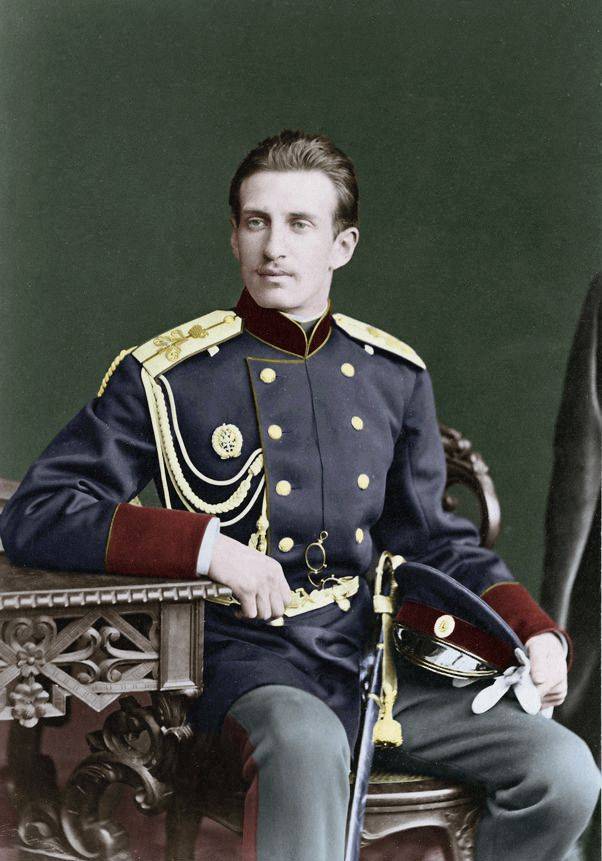
At the age of 15, he could easily recite Hugo's poems in front of everyone: “We do not bow to the king and do not put God in a penny”! And this was said by the offspring of the imperial family! Further more. He could not stand the emperor, and to his girlfriend, maid of honor Maria von Keller, he repeatedly stated that Russia should become a republic. All his modest means received in childhood, he spent on travel books, especially about expeditions to the Asian deserts.
In 1868, Nikolai graduated from the Nikolaev Academy of the General Staff brilliantly and, judging by the way he comprehended the sciences, he had certain abilities that promised him a successful military career. At the age of 18, he was already a captain and the first man from the royal family to graduate from such a prestigious military school.
After the academy, he was enrolled in the Life Guards Cavalry Regiment. True, in the process of training he planted his eyesight and began to suffer from headaches. He was often credited with the phrase “You can buy any woman, the only difference is whether you pay her five rubles or five thousand,” some writers raise the amount to five million. But they forget to add "The bride was traditionally found for him in Germany." Grand Duke Nicholas Konstantinovich was sent abroad to meet his bride. It was Frederick of Hanover.
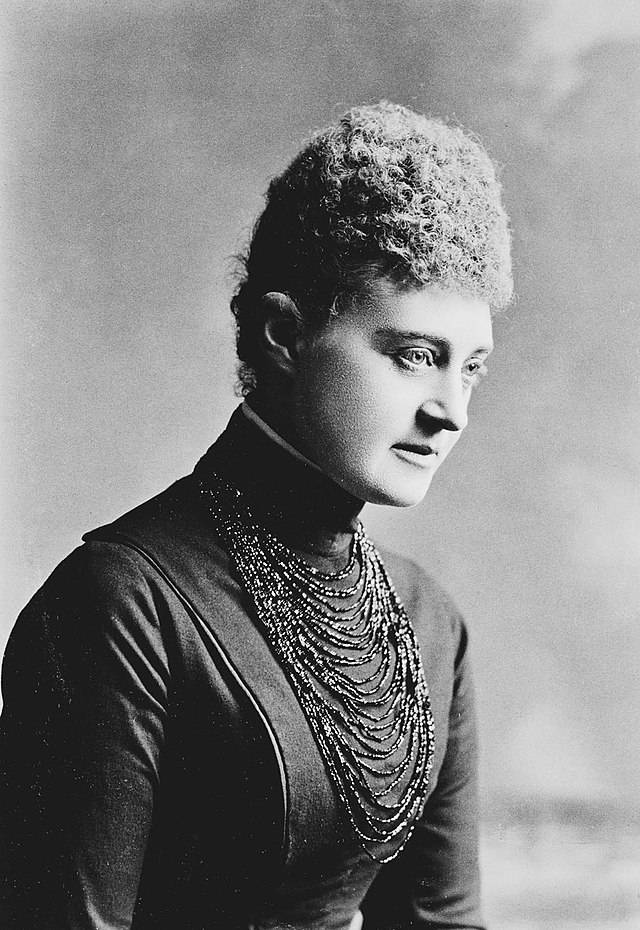
Nikolai was introduced to her and ... fell in love! Yes, I fell in love so much that I didn’t even want to look at other women! The parents were happy, the emperor also gave his consent to the marriage. Nikolai flew on the wings of love, but the hard-hearted German woman answered - "no"! And not because she did not like the Grand Duke, but because she decided not to marry at all. "For no one and never." Visitors to the personal chambers of Nikolai Konstantinovich saw a portrait of a blue-eyed, blond, proud woman. "Who is this? they asked. “The lady of my heart,” he answered sadly, “who has no heart.”
Let's do what most of the authors refused to Nikolai - let's give him the floor.
Russian officer
In the Central Russian Archives, in the file of Grand Duke Nikolai Konstantinovich, there is a single piece of paper with his reflections on the eve of his 20th birthday:
(Mirbach - Nikolai's children's educator, who raised the prince very cruelly).
Grand Duke Nikolai Konstantinovich, as befits a Russian officer, shared the hardships of camp life with his comrades-in-arms, regularly carried out the orders given to him, participated in skirmishes with the enemy, and rightfully deserved the award (golden saber) handed to him on behalf of Emperor Alexander II, as well as the rank colonel, granted July 22, 1873. This is evidenced by the letters of the Grand Duke Nikolai Konstantinovich to his father.
Camp at Halata (Fortification of St. George).
28 April 1873 city
Dear Papa!
I ask I. I. Morev to write for me, as I am weak due to the fever I had. Here in Halata, for several days, terribly strong winds blew, to which Vambery ascribes the property of producing fevers. On one of the most stormy nights from 23 to 24 April at 2 o'clock in the morning, three shots were fired at the forward posts, the alarm sounded, and the detachment immediately took up arms. From the mass of sand in the air, it was hardly possible to distinguish each other in a few steps. I dressed in a hurry and I was taken. We waited in vain for the attack. It was soon reported that the enemy gang had stumbled upon an advanced Cossack picket, which was standing in the direction of our path to the Amu Darya, and, having fired a few shots, quickly retreated.
The next day, a gun and a pistol, abandoned by the enemy, were found at the scene.
On the night of April 17-18, a sad event occurred in the Kazaly detachment. Colonel Romanov, who was traveling with us from St. Petersburg itself and dreamed of exploring the channel of the Amu Darya in order to establish a shipping company on it, shot himself in the mouth and died the next morning. He left me a letter, which I enclose, and which made a terribly painful impression on me. It was difficult to expect such an event from a person with his calm outlook on things, his mind and education.
According to the project, we should be on the Amu Darya near Shurakhan on April 15, but here it is on April 28, and we are still far from it. The official reason for this, of course, was the exhaustion of the camels, the waterless space, the uncertainty of the newly chosen path, and in fact the Jizzakh detachment ate green biscuits for more than a week, and the horses stood for 5 days without barley. Provisional transport has not yet arrived, and if it were not for the Kazalinsky detachment, which, after joining, gave part of the food to the Jizzakh one, and not for the courtesy of the Emir of Bukhara, who presented and sent us flour and barley, then we, perhaps, would have dotted his country with our corpses.
K. P. Kaufman instructed several officers of the General Staff, as well as me, to draw up a plan for moving towards the Amu Darya through a hundred-verst waterless space. Huge sands await us and, according to reports, the enemy wants to use them in order to detain us in a waterless place.
My weakness after the fever would have gone away much sooner if there weren't such terrible heats, from which my blood rushes to my head, as happened to me in Petersburg. You can only live in the evening, at sunset, and at night. And now the month of April, what will happen in May, June and July?
On the 26th, at 6 pm, the advance detachment moved, which headed from Khalat to the wells of Adam-Krylgan. I should have gone in this detachment as an assistant to the head of the detachment, but weakness after a fever did not allow it.
At 9 o'clock in the evening there was a clash with an enemy gang, about which I am writing in a telegram and in which 2 lieutenant colonels, 4 Cossacks and several horsemen were wounded.
It happened so that lieutenant colonels Ivanov and Tikhmenev with 4 Cossacks and with several horsemen retired from the vanguard of the detachment more than a mile ahead. In the area where the road ran between sandy, rather high hills, they were instantly surrounded by the enemy, dismounted and fired back within a few minutes.
Meanwhile, one horseman let the detachment know about the danger, another 8 Cossacks arrived in time to help those surrounded at the moment when Lieutenant Colonels Ivanov and Tikhmenev, and all the surrounded Cossacks were wounded and could barely stand on their feet. From the newly arrived Cossacks, the enemy was scattered, but when he saw that there were few of them, he began to attack again.
Fortunately, the vanguard rifle company approached and rescued the wounded from a hopeless situation. Seeing the approach of the shooters, the enemy immediately dispersed, leaving not one of their own in place. One of the horsemen sent by us, returning, reported that he was in the enemy camp and saw a gang of Turkmens on the Amu Darya at 6, and also heard that 000 people of Turkmens were killed in two skirmishes with us.
Many hugs,
Yours Nikola.
(GARF. F. 722. (Konstantin Nikolaevich). Op. 1. D. 806. L. 125-128v.).
The result - a colonel at the age of 23, a brilliant education, showed himself perfectly in the Khiva campaign, an honorary member of the Imperial Russian Geographical Society orientalist,
collector of paintings of European and Russian painting, which became the basis for the creation in 1919 of the Museum of Art in Tashkent. Annual income of 200 thousand. Young, smart, handsome, Republican and does not hide it.
Fanny Lear
Most authors vied with each other to write about one weakness of the prince - women, citing a gigantic number of ladies who had been in his bed in one night. And when did he have time to study, serve and participate in the IRGS and prepare for the Amu Darya expedition?
Yes, there was a woman, but only one - Fanny Lear, “the lady with camellias”, whose lovers at different times were the Prince of Wales, the future King Edward VII, Prince of the Prussian royal family of Hohenzollern Max of Baden-Baden. The Paris salon of Fanny Lear was visited by great people, poets and writers, there were Dumas the father and Dumas the son. Fanny Lear was the owner of a casino in her homeland in the United States.
Let us again give the floor to Nikolai Konstantinovich:
Finally, I met Fanny, a kindred spirit, both intelligent and loving. It was her, my only one, the one I was looking for for so long! .. We have been together for more than a year! God grant that our happiness does not end!”
Undoubtedly, the prince loved Fanny Lear, and his love was mutual, according to the memoirs of Fanny Lear. However, this is not the topic of my article.
Anna Vasilievna, which will be discussed below, sold her house, a two-story mansion in the city center for 80 thousand rubles. Why this information? In addition to the fact that the income (200 thousand rubles) of the young prince was enough to support his mistress, the prices for jewelry are indicated above - twelve thousand rubles found with Nikolai Konstantinovich was enough to cover three thefts of Empress Alexandra Feodorovna.
The arguments that Nikolai Konstantinovich really needed funds and went on theft are untenable, he is an adult, his parents could not limit his funds.
Let's return to the investigation of the theft.
On April 13, 1874, Nikolai Konstantinovich, being with his mistress Fanny Lear, ordered to collect everything that she had of value and give it to the American embassy for safekeeping. Also letters, the obligation of the Grand Duke for 100 rubles. In addition, he gave her detailed instructions on how she should act in the event of a search.
On April 15, 1874, at 9 o'clock in the morning, Konstantin Nikolayevich invited his son and, in the presence of the St. Petersburg mayor, Adjutant General F. F. Trepov, interrogated Captain Varnakhovsky about the things he had pledged in the pawnshop. The adjutant of Nikolai Konstantinovich "did not explain how it was."
At 13 pm, Konstantin Nikolayevich was informed that Alexander II decided to transfer the case of the sale of the diamond star to the chief of gendarmes P. A. Shuvalov, and the Grand Duke Konstantin Nikolayevich was given the right to decide whether to proceed further with the case or stop its proceedings. At 18 o'clock Konstantin Nikolayevich talked to his son for the second time, asking him whether the work he had begun should be continued, but Nikolai insisted on carrying out a further and, moreover, the most rigorous and public investigation.
On the same day, Fanny Lear was arrested, and by order of P. A. Shuvalov, her house was searched.
The investigation is developing rapidly and in one direction, other versions, except for the guilt of Nikolai Konstantinovich, are not considered in principle. A decision was made to “put the squeeze on” the suspect, and for this they brought in the chief of the gendarmes, P. A. Shuvalov, a very ambiguous personality.
Pyotr Andreevich Shuvalov
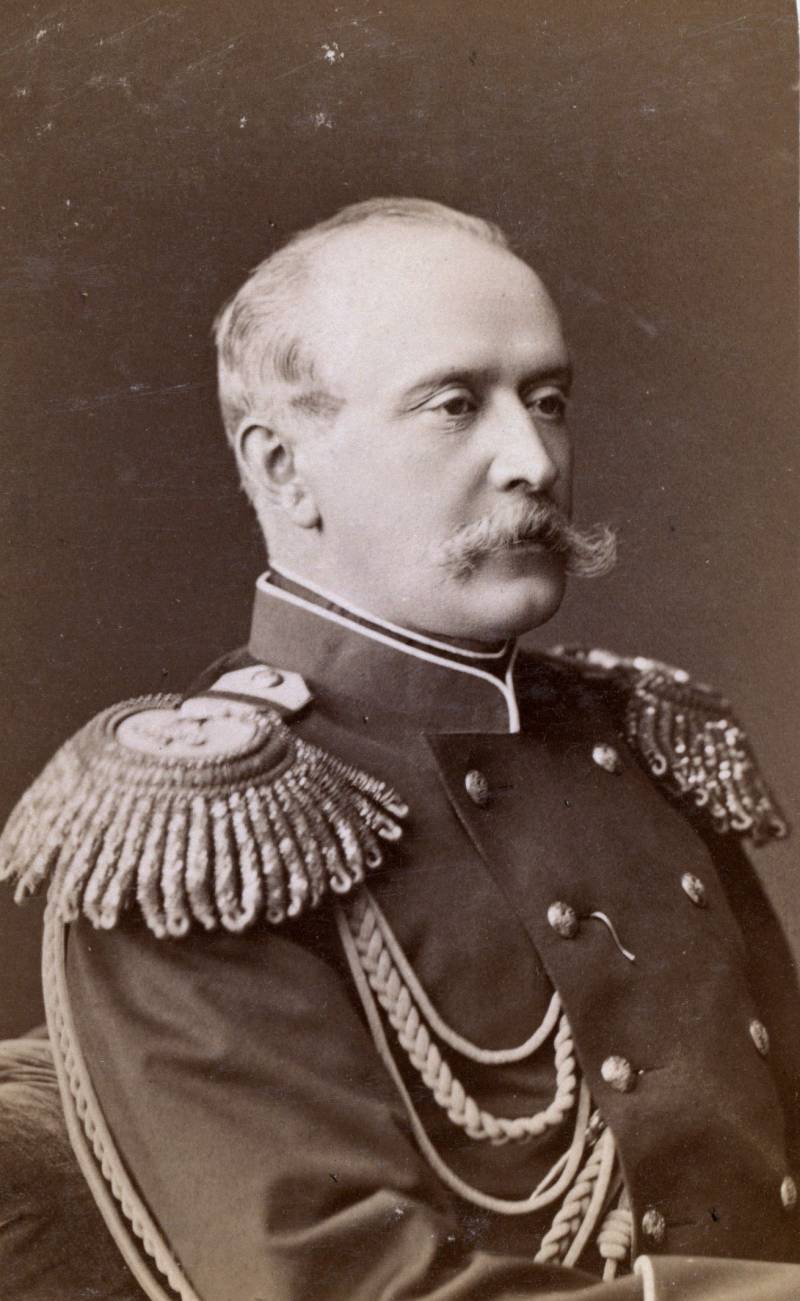
A member of the party of ardent opponents of the abolition of serfdom, led by his father, Prince. V. V. Dolgoruky and Prince. A. S. Menshikov. Following the dismissal of Lansky and N. A. Milyutin from the Ministry of the Interior, Shuvalov's influence increased significantly, especially since his appointment as chief of staff of the gendarme corps and manager of the III Department of His Imperial Majesty's Own Chancellery.
Shuvalov's influence on domestic politics for seven years (from 1866 to 1874) was given such importance that he was called "vice-emperor", "Peter IV", "the second Arakcheev." Being the closest adviser to Emperor Alexander II, he recommended for the posts of ministers of internal affairs and justice the same opponents of any reforms as he himself was. It is well known that P. A. Shuvalov and Grand Duke Konstantin Nikolayevich had serious disagreements on political grounds. It is hard to imagine a worse candidate for investigating such a delicate case.
Let's continue the investigation.
Palace intrigues and political adventures. Notes by Maria Kleinmichel:
Konstantin Nikolayevich could not come to terms with the accusations against his son, despite all their obviousness, and saw this as a political intrigue, saying to Shuvalov: “You invented all this just to spread slander about my son, your thirst for revenge wants to dishonor him. I will call Nikolai, and dare to repeat your accusations in his presence.
After reading these lines, one thought comes to the head of a sane person, P. A. Shuvalov decided to take advantage of the situation and involve Konstantin Nikolayevich in this matter. P. A. Shuvalov offered to settle the problem for the money of Konstantin Nikolayevich and make the Grand Duke an accomplice in crime, very generously and nobly. And who was to be the scapegoat? The only candidate for this role (for a large sum) is E. P. Varpakhovsky, the main witness for the prosecution.
Yes, police detectives could pull off this combination, as I wrote above, there are enough killers in St. Petersburg who confess to theft. Memories of Fanny Lear:
Now imagine that Konstantin Nikolaevich agrees to the proposal of the chief of gendarmes.
And again a little history.
Notes by Maria Kleinmichel "Palace intrigues and political adventures":
Two weeks later, my father received a letter from his friend Valuev, Deputy Minister of the Interior, in which he said that my father would lose his post because the gendarmerie colonel who was present at dinner sent an indignant, secret denunciation that the Pole had dared at the table the governor to make such an unacceptable toast. Valuev advised my father to immediately go to Petersburg to justify himself. My father immediately followed his advice, and I remember how my mother shed many tears at parting.
Everything was soon put in order: Minister of the Interior Lanskoy was a very benevolent, just man. He described this event to the emperor in its true light, and this incident did not entail any consequences.
“This event indicates the spirit of the then gendarmerie, this secret and at the same time official police, which lay a heavy burden on all officials, both large and small, and these scammers were never punished.”
Why did I bring up this memory?
To understand what was important to correctly convey to whom it was necessary with the correct placement of accents and in the right light the event. P. A. Shuvalov could become the bearer of the secrets of the imperial couple, immeasurably increase his influence on the emperor. He could do it, he had enough influence and supporters for this. But it did not work out, Konstantin Nikolaevich rejects the proposal.
Also, the actions of the chief of gendarmes led to the fact that soon the whole empire knew about the event. P. Lavrov in his collection "Forward" wrote:
On the night of April 15-16, P. A. Shuvalov arranges a three-hour night interrogation. What did the chief of gendarmes count on? To the recognition of Nikolai Konstantinovich? What irrefutable evidence does P. A. Shuvalov cite, to which the authors of numerous articles refer, the proof of the prince’s guilt is one testimony of the adjutant.
Nikolai Konstantinovich did not admit to anything. In the diary of the Grand Duke Konstantin Nikolayevich we read the following on this occasion:
The goal of P. A. Shuvalov was only to discredit his son in the eyes of his father, to sow the seeds of doubt in the soul of Konstantin Nikolayevich, and he succeeded.
On April 16, 1874, Nikolai Konstantinovich was already under house arrest. He went to bed complaining of "anguish and headache."
Crazy
My opponents will say that everything I wrote was vain and meaningless: “It has long been established that Nikolai Konstantinovich is crazy, a kleptomaniac, there is a doctor’s conclusion.”
Let's deal.
Psychiatrists have one riddle: “What do milk and a hedgehog have in common”? If you answered correctly, they can both fold, congratulations - you are a schizophrenic. “The binary opposition fool/crazy can be seen as a generalization of two oppositions: fool-smart and smart-crazy. Together they form one ternary structure: fool - smart - crazy. Fool and madman in such a construction are not synonyms, but antonyms, extreme poles.
"The behavior of a lunatic. It differs in that its bearer gets additional freedom in violating prohibitions, he can do things that are forbidden for a “normal” person. This makes his actions unpredictable. The last quality, destructive as a constantly operating system of behavior, unexpectedly turns out to be very effective in moments of acute conflict situations.
In a word, the crazy prince had to act extraordinary. For example, set fire to the mother's bedroom, shoot Fanny Lear and the adjutant, accusing them of treason and theft, set up the adjutant's suicide. Lots of options. But Nikolai Konstantinovich acted differently, he prudently thought out how to save Fanny Lear, a person close to him. And he did it in such a way that Fanny Lear received 50 thousand rubles from the government for the prince's papers and was expelled from the country without any consequences.
On April 19, 1874, the decision had already been made, because, according to Milyutin:
Professor I. Balinsky reported to Emperor Alexander II that he recognized Nikolai Konstantinovich "really sick and considers it necessary to arrange medical supervision over the state of health of His Majesty."
Responsible for the state of health of Nicholas Konstantinovich, Alexander II appointed the life physician Nikolai Zdekauer and Professor Ivan Balinsky, ordering him to draw up instructions on the procedure for treating and monitoring the patient and send him weekly bulletins about his state of health, appoint a reliable doctor for permanent stay with the person of Nikolai Konstantinovich. On April 20, the instruction was drawn up.
Soon a doctor was also selected, who began his duties already on April 26, 1874. This case is striking in its efficiency: the crime was solved in one day, Alexander II made a decision on the third day after the interrogation of the prince, a medical examination with instructions for treatment was compiled in one day.
But with the doctors, and this is documented, it did not turn out quite smoothly.
“Contemporaries wondered,” writes historian Zimin, “what could have prompted Nikolai Konstantinovich to steal diamonds of relatively low value, when he himself had a huge fortune. Public opinion was unanimous - kleptomania. But this disease is not mentioned in official documents. We are talking only about "signs of mental disorder." According to the specialist in nervous diseases Ivan Mikhailovich Balinsky, whom Anatoly Fedorovich Koni called the "father of Russian psychiatry", kleptomania was out of the question. It seems that the doctors made a deal with their conscience: they said to find it - they found it, “signs of a mental disorder”, yes, just signs. Depression also falls under this definition.
On August 12, 1874, an interim medical diagnosis noted that "His Highness's mental illness, due to the absence of systematic delirium, is found more in actions than in words." The version of kleptomania was resolutely rejected by the doctors: but they stated that the patient "has developed a clear hereditary form of insanity", and this is after four months of "treatment", which, according to eyewitnesses, was cruel and humiliating.
On September 12, 1874, a Conference headed by the Minister of the Imperial Court, Count A. V. Adlerberg, was created to make a final decision on the case of Nikolai Konstantinovich.
On November 28, December 3 and 7, 1874, meetings of a specially composed meeting were held, in which the most prominent dignitaries took part. It was they who were supposed to legally formalize the official madness of Nikolai Konstantinovich and determine his future fate. As a result, the Grand Duke was officially recognized as mentally ill, and guardianship was appointed over him. Then the Grand Duke was exiled, and he remained in exile in various cities of Russia until his death at the beginning of 1918, that is, at the age of 43.
If not him, then who?
If not Nikolai Konstantinovich, then who? And there are surprisingly many options.
Adjutant Captain Evgeny Petrovich Varpakhovsky. The officers of the Russian Empire most of all needed money. The salary did not cover all costs, and without additional income, it was impossible to serve. Participation in this story did not pass without a trace for him, as I wrote above, he disappears. And many contemporaries considered him the culprit of the theft.
Savin Nikolay Gerasimovich. In 1874, in St. Petersburg, 19-year-old Savin served as a cornet in the Separate Guards Corps of a separate regiment. In 1877, during the Russian-Turkish war, Savin fought as a volunteer in the 9th Army Corps under the command of Lieutenant General Baron Kridener, was wounded near Plevna. And at the same time a criminal-adventurer.
After the death of Fanny Lear in 1886, while in Paris, Savin stated that he was the only "witness" to the theft of diamonds, and only he alone knew the exact reason for their theft.
According to him, adjutant Yevgeny Varpakhovsky is a random person who fell under the arm of the gendarmes. The reason for the theft was the need to finance a "revolutionary conspiracy" against Alexander II. An interesting personality, constantly in need of money and getting it in various criminal ways.
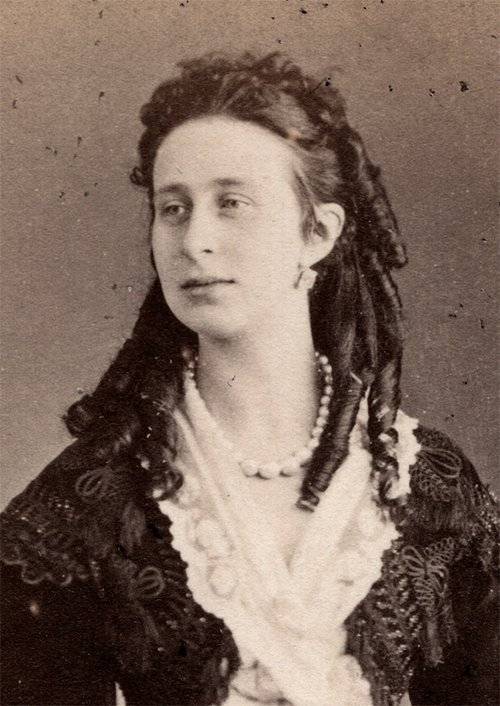
Grand Duchess Alexandra Iosifovna. Don't be surprised by this turn of events.
The Grand Duchess was a woman with oddities, succumbing to the then fashionable passion for spiritualism, and due to her character, Alexandra Iosifovna lost her family. After all, having such a maid of honor as MS Annenkov in your environment, it is difficult to remain sane.
And again a little history.
Maria Sergeevna Annenkova - maid of honor of the Grand Duchess Alexandra Iosifovna. That's who the psychiatrists were supposed to examine - so it's her. The eldest daughter of the official Sergei Petrovich Annenkov, known for his adventurism and rampant lifestyle. In 1855, she was accepted as a maid of honor at the court of the Grand Duchess Alexandra Iosifovna and, through spiritualistic seances, acquired an invisible power over the Grand Duchess. Moreover, she claimed that during the sessions, Marie Antoinette appeared to her, who revealed to her that she was supposedly actually the great-niece of Louis XVI.
According to the memoirs of A. F. Tyutcheva “At the court of two emperors”:
Last night at tea, the sovereign received a dispatch from the Grand Duchess Maria Nikolaevna, in which, among other things, she said that m-lle Annenkova disappeared again, after her father had once searched for her. A conversation began on this subject, and the emperor and empress told me the following story, which is very difficult to understand.
During nervous attacks, m-lle Annenkova was magnetized by the Grand Duchess Alexandra Iosifovna. Annenkova fell into a state of somnambulism, during which she had revelations from the supersensible world; she saw hosts of heavenly powers, fell into ecstasy, entered into intercourse with spirits; Marie Antoinette appeared to her, who revealed to her that she was not at all the person for whom she considers herself, - not the daughter of her father, but the daughter of the Duke of Angouleme and a Danish princess, the great-granddaughter of Charles X and the great-niece of Louis XVI and Marie Antoinette, the proof of which she will find in the image in the possession of her so-called father, which the somnambulist has described.
The image was actually found by Mr. Annenkov and was sent here. On the reverse side, the image was covered with pink taffeta, and under the taffeta on the board was the inscription: "This image belongs to Marie Bourbon."
I advise everyone to read the full text, it is very interesting and informative.
Living abroad, she was in correspondence with the emperor and empress, in her letters she threatened and demanded that she be recognized as the princess of Bourbon. In Paris, Napoleon III was very surprised by her story.
Konstantin Nikolaevich had not lived with his lawful wife for a long time, he himself confessed to her that he loved another and went to Anna Vasilievna Kuznetsova (January 15 (27), 1844–1922).
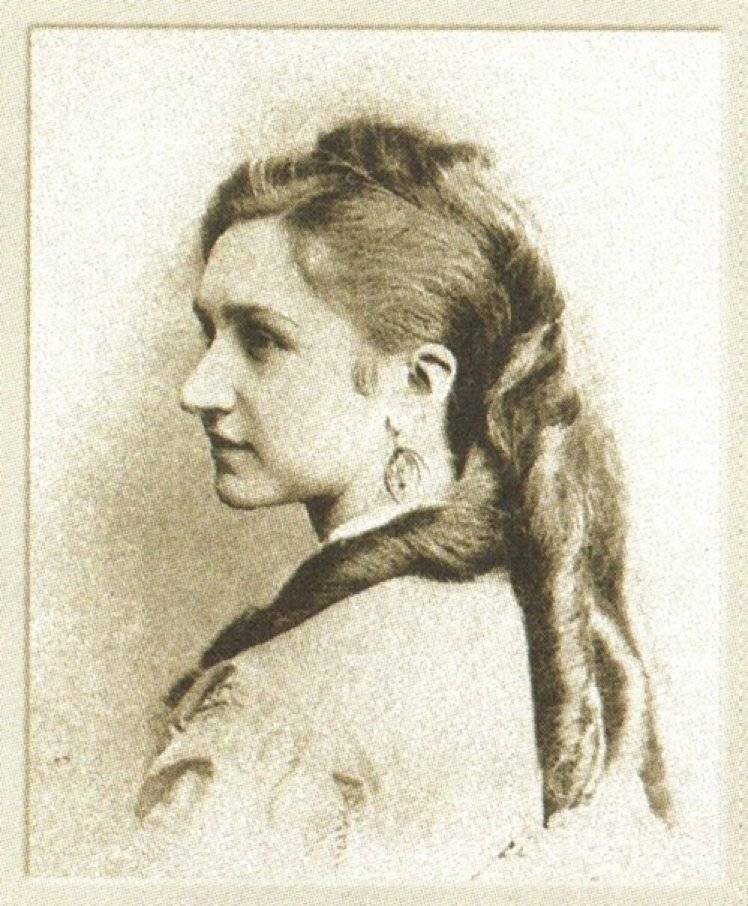
Anna Vasilievna Kuznetsova - ballerina of the St. Petersburg Imperial troupe. It was she who I mentioned when I wrote about the sale of a two-story house that Konstantin Nikolayevich bought for her.
“In St. Petersburg I have a government wife, but here I have my own” - this is how Konstantin Nikolayevich introduced Anna Vasilyevna to his acquaintances. Alexandra Iosifovna did not make scandals, but family relations were terrible.
Why was the theft necessary?
And now the arguments why the theft was committed by Alexandra Iosifovna.
At first, the theft is committed from her bedroom, this is a direct challenge to her husband, this is a scandal.
Secondly, the salary of the wedding icon was destroyed, the violation of the sacred oath by the spouse.
Thirdly, only one crown could be torn off, the second was bent (the woman did not have enough strength).
Fourthly, in 1874, Konstantin Nikolayevich and his common-law wife Anna Vasilievna Kuznetsova had their first child - son Sergei, all hopes that this was a fleeting hobby collapsed, and this served as the final impetus.
Alexandra Iosifovna herself thought of it or this idea was suggested during a seance - it does not matter. Another thing is important - the reactionary party took advantage of the situation, the Konstantinovich clan that interfered with it was destroyed.
Why was this needed?
I will not hide, I embark on the path of conspiracy theories.
According to the law of the Russian Empire on succession to the throne, one of his sons who was born when the father was already a sovereign or at least an heir was recognized as the legitimate successor of the emperor. But there was a violation of the law of succession.
After the death of the childless Alexander I and the abdication of the next in seniority, Konstantin Pavlovich, in 1825, the younger brother Nikolai Pavlovich (Nicholas I) ascended the throne. The eldest son - Alexander (future Alexander II) was born before Nikolai Pavlovich became heir to the throne or emperor. And according to the law, Alexander was not a crown prince, that is, heir to the throne.
According to the law, the second son of Nicholas I, Konstantin Nikolayevich, who was born in 1827, when his father had already become emperor, was supposed to inherit the throne. But the eldest son Alexander II became emperor.
Information